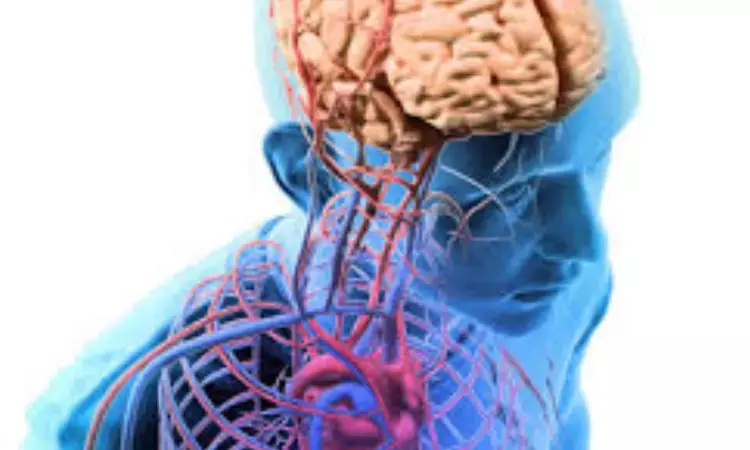- Home
- Medical news & Guidelines
- Anesthesiology
- Cardiology and CTVS
- Critical Care
- Dentistry
- Dermatology
- Diabetes and Endocrinology
- ENT
- Gastroenterology
- Medicine
- Nephrology
- Neurology
- Obstretics-Gynaecology
- Oncology
- Ophthalmology
- Orthopaedics
- Pediatrics-Neonatology
- Psychiatry
- Pulmonology
- Radiology
- Surgery
- Urology
- Laboratory Medicine
- Diet
- Nursing
- Paramedical
- Physiotherapy
- Health news
- Fact Check
- Bone Health Fact Check
- Brain Health Fact Check
- Cancer Related Fact Check
- Child Care Fact Check
- Dental and oral health fact check
- Diabetes and metabolic health fact check
- Diet and Nutrition Fact Check
- Eye and ENT Care Fact Check
- Fitness fact check
- Gut health fact check
- Heart health fact check
- Kidney health fact check
- Medical education fact check
- Men's health fact check
- Respiratory fact check
- Skin and hair care fact check
- Vaccine and Immunization fact check
- Women's health fact check
- AYUSH
- State News
- Andaman and Nicobar Islands
- Andhra Pradesh
- Arunachal Pradesh
- Assam
- Bihar
- Chandigarh
- Chattisgarh
- Dadra and Nagar Haveli
- Daman and Diu
- Delhi
- Goa
- Gujarat
- Haryana
- Himachal Pradesh
- Jammu & Kashmir
- Jharkhand
- Karnataka
- Kerala
- Ladakh
- Lakshadweep
- Madhya Pradesh
- Maharashtra
- Manipur
- Meghalaya
- Mizoram
- Nagaland
- Odisha
- Puducherry
- Punjab
- Rajasthan
- Sikkim
- Tamil Nadu
- Telangana
- Tripura
- Uttar Pradesh
- Uttrakhand
- West Bengal
- Medical Education
- Industry
High fasting blood sugar may impair cardiac autonomic control in diabetics: Study

Brazil: A recent study published in the journal Frontiers in Endocrinology showed that high fasting blood sugar level in patients with type 2 diabetes (T2D) is associated with cardiac autonomic dysfunction. According to the study, patients with T2D showed lower parasympathetic modulation at rest and slowed heart rate recovery (HRR) in response to physical exercise implying glycemic profile to be an important predictor of impaired cardiac autonomic modulation.
Type 2 diabetes is a chronic disease characterized by a metabolic disorder that increases blood glucose concentration. Chronic hyperglycemia is known to be associated with several complications in such patients. Cardiac autonomic dysfunction is one such complication that can be assessed from heart rate variability (HRV) and heart rate recovery (HRR) response -- both associated with many aspects of fitness and health, including severe cardiovascular outcomes.
Against the above background Lucas Raphael Bento Silva, Department of Physical Education, Araguaia University Center, Goiânia, Brazil, and colleagues aimed to evaluate the effects of T2D on cardiac autonomic modulation by means of HRV and HRR measurements.
The study is an observational study with the characteristic of case control. It involved ninety-three middle-aged adults stratified into two groups (control group - CG, n = 34; diabetes group - DG, n = 59). Following their consent through a free and informed consent form, the patients were submitted to the evaluation protocols, performed biochemical tests to confirm the diagnosis of T2D, collection of R-R intervals for HRV analysis, and cardiopulmonary effort test to quantify HRR.
The study found the following:
- At rest, the DG showed a reduction in global HRV (SDNN= 19.31 ± 11.72 vs CG 43.09 ± 12.74), lower parasympathetic modulation (RMSSD= 20.49 ± 14.68 vs 52.41 ± 19.50, PNN50 = 4.76 ± 10.53 vs 31.24 ± 19.24, 2VD%= 19.97 ± 10.30 vs 28.81 ± 9.77) and higher HRrest when compared to CG.
- After interruption of physical exercise, a slowed heart rate response was observed in the DG when compared to the CG.
- A simple linear regression showed that fasting glycemia was able to predict cardiac autonomic involvement in volunteers with T2D.
"T2D patients presented impairment in cardiac autonomic modulation with greater sympathetic modulation and lower vagal modulation versus healthy people at rest and in response to physical exercise," wrote the authors. "Fasting glycemia was associated with cardiac autonomic dysfunction.*"
Reference:
Silva LRB, Gentil P, Seguro CS, de Oliveira GT, Silva MS, Zamunér AR, Beltrame T and Rebelo ACS (2021) High Fasting Glycemia Predicts Impairment of Cardiac Autonomic Control in Adults With Type 2 Diabetes: A Case-Control Study. Front. Endocrinol. 12:760292. doi: 10.3389/fendo.2021.760292
Dr Kamal Kant Kohli-MBBS, DTCD- a chest specialist with more than 30 years of practice and a flair for writing clinical articles, Dr Kamal Kant Kohli joined Medical Dialogues as a Chief Editor of Medical News. Besides writing articles, as an editor, he proofreads and verifies all the medical content published on Medical Dialogues including those coming from journals, studies,medical conferences,guidelines etc. Email: drkohli@medicaldialogues.in. Contact no. 011-43720751


